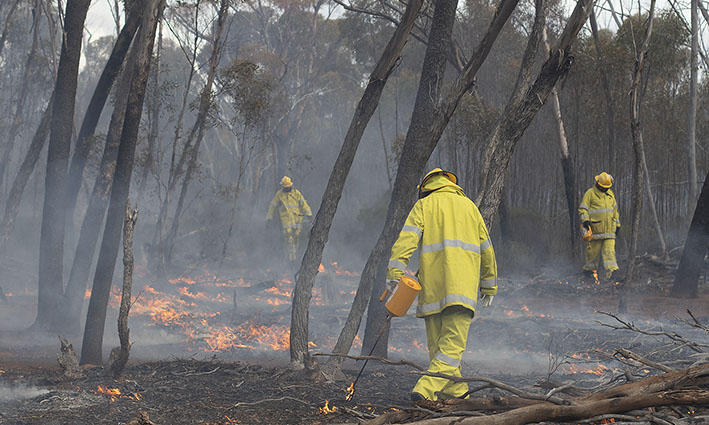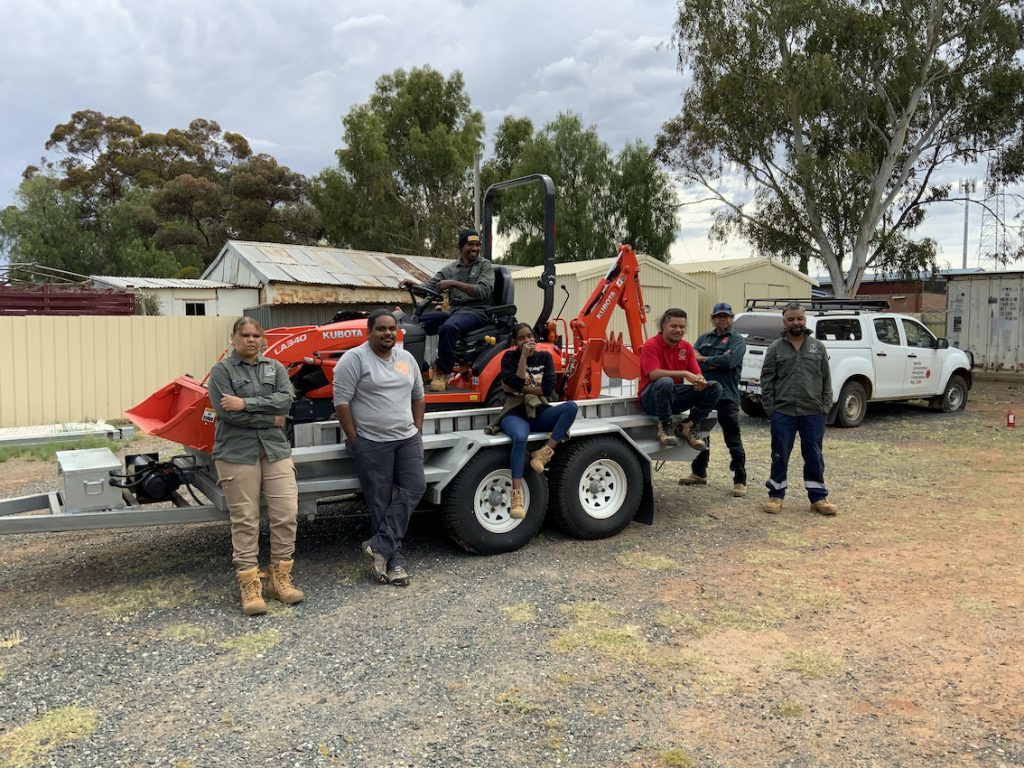Annual Review stories Black Summer Bushfire Recovery Community stories Disaster recovery stories: 10 November 2022
On Ngadju Country
Late 2019 / early 2020 saw 13 bushfires devastate approximately one million hectares of Ngadju country in southern WA, including large tracts of the Great Western Woodlands, the largest temperate woodland remaining on Earth. It is estimated that the extent of the area of Ngadju country impacted by the fires was equivalent to about half the size of Victoria. The bushfires burnt tracts of old growth forest, overran spiritual sites and destroyed the habitat and nests of threatened species.
Ngadju Conservation Aboriginal Corporation (NCAC) works with the Ngadju community to increase the understanding of conservation and land management opportunities and assist in building capacity to achieve them. Ngadju Rangers use cultural knowledge, refined over thousands of years, to care for the environment and work on Country to manage fire, feral animals and weeds, and to protect mijalkarru (rockholes), the Granites, water places and the flora and fauna of the Great Western Woodlands and the Nullarbor plains.
Following the fires, NCAC received a $25,000 Strengthening Rural Communities grant funded by IKEA Australia through FRRR to help the Ngadju Rangers to both repair the damage and undertake work to protect the environment and cultural sites from the devasting impact of the bushfires. Their approach involves a detailed program of cultural burning to protect sites, old growth and water trees. The mosaic effect of landscape-scale burning benefits biodiversity by reducing the extent and severity of large-scale fire and creates a range of vegetation growth stages and habitats that suit different species. Prior to a burn, Ngadju Rangers and Elders walk through the planned burn site to survey for cultural and environmental values. However, access to the tracks leading to these sites were heavily impacted by the recent fires and also from years of neglect.
NCAC used the grant to commission a specially fabricated trailer with hydraulic tipping for use with their tractor to help the Rangers clear the tracks, enabling safe access to undertake their important cultural and environmental work. This improved access will also allow other Ngadju community members to attend sites and undertake voluntary maintenance and management, which will help them reconnect with Country and transfer knowledge across generations.
Helen Langley, NCAC’s CEO, said that the project wasn’t without its challenges.
“The challenge was the amount of time it took for the trailer to be fabricated and then wired. It took eight months for the trailer to be built and we have only recently received delivery. We are developing Safe Operating Procedures and have organised training for the Rangers so that we can commence clearing tracks and making fire breaks around areas of mosaic burns.
“We are proud that the Ngadju Rangers can now access their Country for cultural burning and they can use machinery to make fire breaks. The project has assisted in rebuilding the Ngadju community and provided healing for community who are mourning the loss of Country.”
For more inspiring stories like this, head to our FY 2021/22 Annual Review.



